CustomsAndBorderProtection
Latest

US border officers don't always delete collected traveler data
Privacy advocates aren't just concerned about warrantless device searches at the border because of the potential for deliberate abuse -- it's that the officials might be reckless. And unfortunately, there's evidence this is the case in the US. Homeland Security's Office of the Inspector General has released audit findings showing that Customs and Border Protection officers didn't properly follow data handling procedures in numerous instances, increasing the chances for data leaks and hurting accountability.
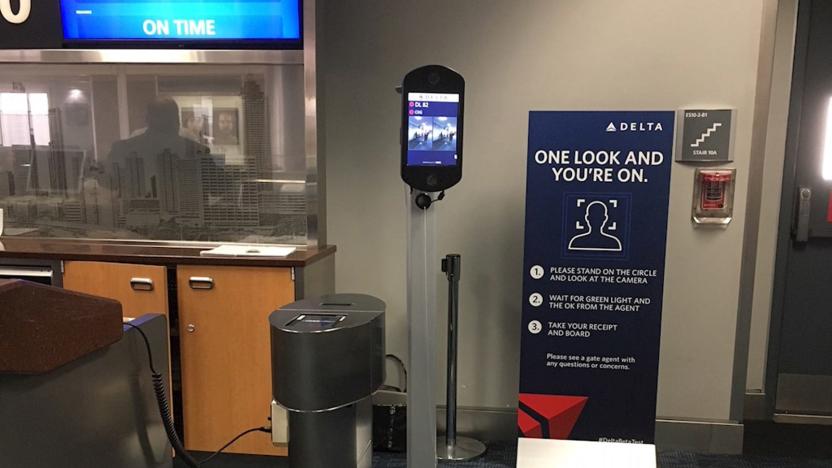
TSA outlines its plans for facial recognition on domestic flights
The Transportation Security Administration is determined to make facial recognition and other biometrics a regular part of the airport experience, and it now has a roadmap for that expansion. The effort will start by teaming with Customs and Border Protection on biometric security for international travel, followed by putting the technology into use for TSA Precheck travelers to speed up their boarding process. After that, it would both devise an "opt-in" biometric system for ordinary domestic passengers and flesh out a deeper infrastructure.
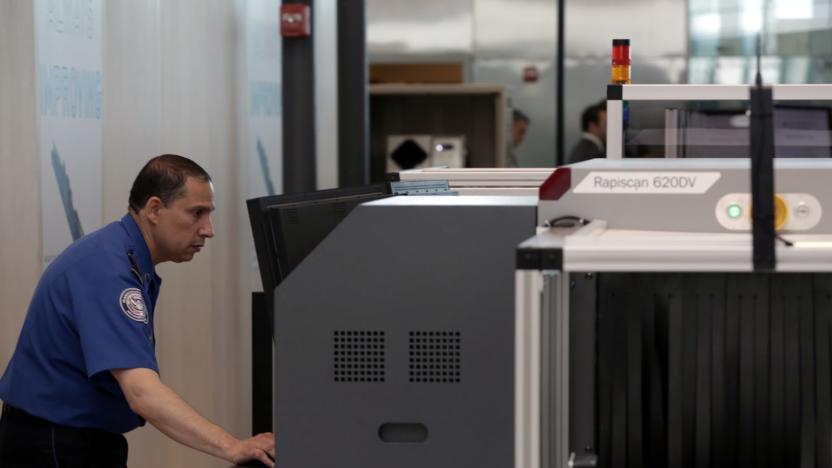
Face scanning in US airports is rife with technical problems
If you've had misgivings about the effectiveness of Homeland Security's airport face scanning (let alone the privacy implications), you're not alone. The department's Inspector General has issued a report warning that the scanning system is struggling with "technical and operational challenges." Customs and Border Protection could only use the technology with 85 percent of passengers due to staff shortages, network problems and hastened boarding times during flight delays. The system did catch 1,300 people overstaying their allowed time in the US, but it might have caught more -- and there were problems "consistently" matching people from specific age groups and countries.

New lawsuit shows your phone is unsafe at American borders
A recent case filed in federal court, in which an American woman had her iPhone seized and cracked by Customs and Border Protection in a New Jersey airport puts a whole new spin on the things we now need to worry about when leaving the country. It appears that now everyone's phones, despite country of origin or cause, are subject to nonconsensual seizure and search -- even if we refuse to give up our passwords. If you're not caught up on the story, news hit this week that a Staten Island mom coming home from a February trip with her 9-year-old daughter from Switzerland had her iPhone snatched, kept for months and accessed for no given reason. Apple did not respond to a request for comment by publication time.
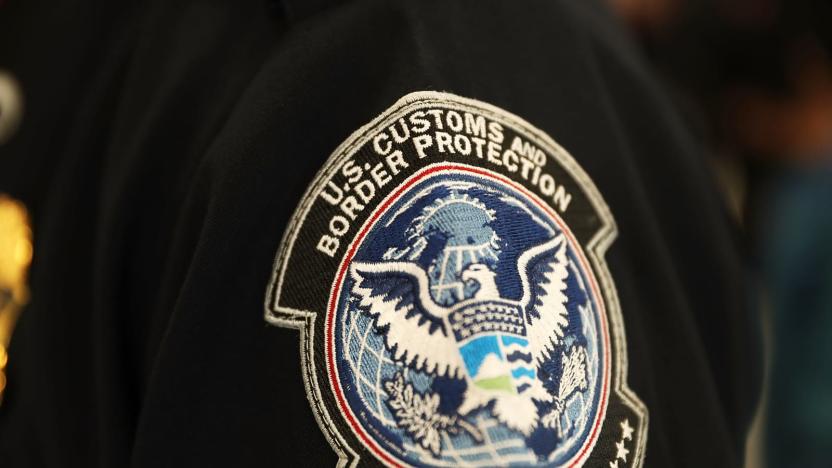
US customs faces lawsuit over copied iPhone data
A US Muslim woman whose iPhone was taken from her by US Customs and Border Protection (CPB) is suing to have her property returned. But the property in question isn't the phone itself, which was eventually returned, but the data stored on it and retained by CPB. As searches of electronic devices belonging to people entering or returning to the US continue to become more frequent, this case and others are raising important questions about what can and should be searched and retained by the US government.
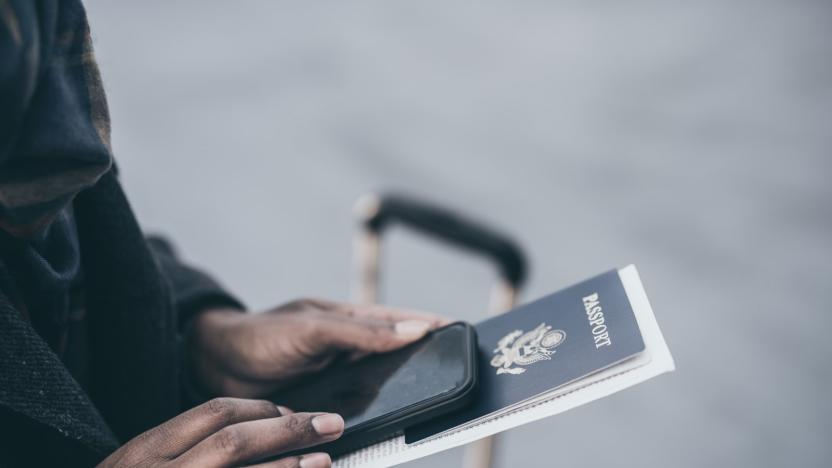
US border guards searched 60 percent more devices in 2017
In 2017, the US Customs and Border Protection searched 30,200 electronic devices. That's over 60 percent the number of searches its personnel conducted the year before to the dismay of privacy advocates. Some also view the rise in searches as a product of the administration's stance on immigration. "[I]t goes against the very thing the 4th Amendment was designed to protect against, which is arbitrary dragnet surveillance," University of Washington in Seattle law professor Ryan Calo told Los Angeles Times. The agency has revealed those numbers in an announcement, along with changes to its directives that could be both good and bad news for travelers.

DHS faces lawsuit over phone and laptop border searches
The number of electronic devices seized and searched at customs sharply increased in 2016 and has continued to rise this year. A number of groups and politicians have spoken out against the growing practice and now the ACLU and the Electronic Frontier Foundation (EFF) have filed a lawsuit against the Department of Homeland Security on behalf of 11 individuals who had their devices searched without a warrant.
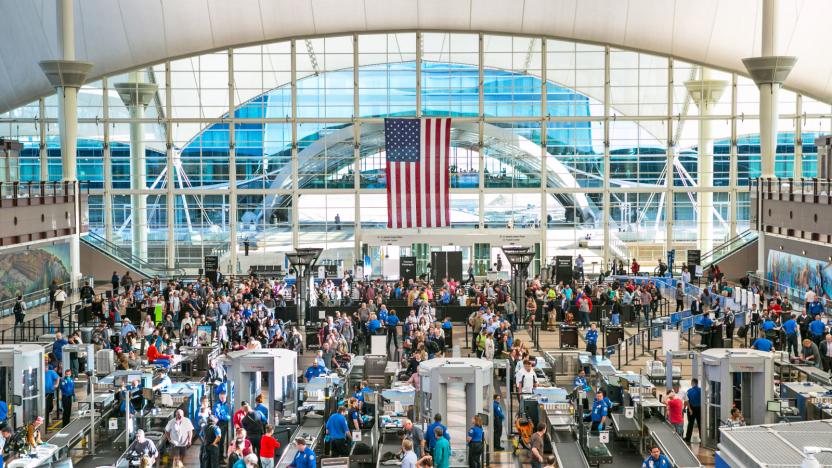
Airports may use face recognition to screen US citizens (update: more info)
Right now, the US is trotting out an airport security plan revolving around facial recognition. It's supposed to automatically register visitors to the US when they leave, and signal when they come back. However, Customs and Border Protection now wants to expand the effort to include virtually every situation where you normally need an ID -- and that could include scanning US citizens. The agency's John Wagner has floated the possibility that face recognition could also be used to scan all arrivals, TSA checkpoints and lounge access, including citizens. CBP hasn't committed to a firm plan, but it tells The Verge it wants to "open the dialogue" to people outside its walls.
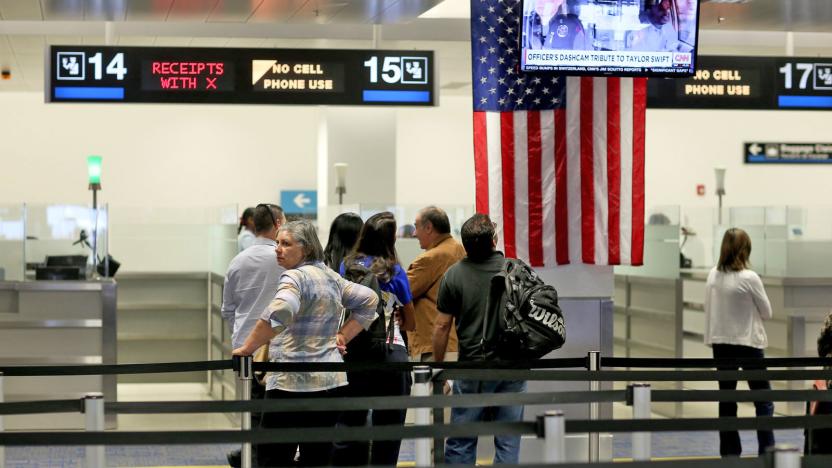
Senate bill would require a warrant for border phone searches
Did US border agents insist on searching the contents of your smartphone during your latest trip, privacy be damned? You're not alone -- Homeland Security has revealed that searches by Customs and Border Protection are surging, growing from under 5,000 in all of 2015 to 5,000 just this February. However, there might soon be legislation that keeps these searches in check. Oregon Senator Ron Wyden is preparing a bill that would not only require a warrant before border officials can search the devices of US citizens, but strictly forbid them from asking for passwords. They'd need a legitimate reason to believe your phone holds something shady, not just a hunch.

Peter Thiel's startup helps authorities track illegal immigrants
Data-mining and analytics firm Palantir, co-founded by Gawker-bankrupting tech billionaire Peter Thiel, remains a secretive purveyor of intelligence-gathering tools. While a May report revealed the company's struggles retaining blue chip commercial clients, it still retains contracts with some government agencies. Recently-released documents uncover that the company has quietly provided assistance to US Customs and Border Protection (CBP) by contributing to an info analysis system that draws information from multiple law enforcement databases. This existing relationship could assist Trump in his stated plans to ramp up the US' immigration vetting process.

DC airport tries using face recognition to catch imposters
If you come to the US through Washington DC's Dulles airport in the near future, don't be surprised if Customs and Border Protection takes your snapshot before letting you through. The agency has confirmed to Motherboard that it will be testing a facial recognition system which captures a photo and compares it against your passport picture to see if you're an imposter. The relatively short (2 to 3 months) trial won't rely solely on face detection to flag suspicious travelers, but it could give customs agents a way to double-check identities without relying so heavily on keen eyes and intuition.

Data breaches compromised the info of US undercover investigators
Data theft is normally pretty bad all on its own, but a recent breach at US Investigations Services (a background check company) may have created some extra-strong headaches for the US government. Reuters understands that the intrusion exposed personal information of 25,000-plus Department of Homeland Security workers, including "some undercover investigators." There's no certainty that the attackers stole those agents' information, but there's a real chance that their identities are out in the wild -- a big problem if suspects can double-check identities and avoid getting caught. The concern is exacerbated by the nature of the attack, which USIS believes might have been "state-sponsored."

Microsoft sues US Customs and Border Protection for not enforcing ITC exclusion order against Motorola
Thought the ITC battle between Microsoft and Motorola over Microsoft's email-based meeting patents was over? Think again. Despite winning an exclusion order (read: an import ban) on all MMI handsets infringing its patent, Microsoft has filed suit in the US District Court for the District of Columbia against US Customs and Border Protection (CBP), Customs Deputy Commissioner Thomas Winkowski, the Department of Homeland Security and Homeland Security Secretary Janet Napolitano for failing to enforce the order. The complaint alleges that the defendants failed to do their jobs and allowed infringing devices to continue to be imported based upon claims and arguments Moto successfully made to US Customs -- and Microsoft was neither privy to these discussions, nor given the opportunity to respond to Motorola's claims. Essentially, Microsoft argues that Customs and Border Protection has both shirked its duties and made rulings in direct conflict with the ITC's decision and order. As such, Microsoft wants the court to rule that the CBP exceeded its legal authority, set aside the unlawful rulings set forth by CBP and compel it to enforce the ITC's exclusion order. In addition to the complaint, Microsoft also filed for a Preliminary Injunction asking that the original ITC import ban be enforced immediately. We've yet to hear how the government will respond to these allegations, but we'll keep you posted as things develop.

$635,000 in bogus Lightning cables nabbed in Alaska
One of the functions of the US Customs and Border Protection agency is to seek out and seize counterfeited goods, and the Alaska Dispatch is reporting that the CBP nabbed more than US$635,000 in counterfeit Lightning cables and adapters during a search in Anchorage. The cables and adapters had come from China on a cargo plane, destined for spots around the US. The products came in boxes with fake Apple logos and Underwriters Laboratories (UL) trademarks, but spokesman Frank Falcon of the CBP reported that they "stood out" as counterfeits, packaged in cardboard packs that were of sub-standard quality. An unnamed Chinese manufacturing firm is responsible for the shipment, and Falcon noted that the seizure of the counterfeit goods will "bring more scrutiny" to future shipments from the company. There are safety concerns with such counterfeits, as unauthorized use of the UL logo could mean that the cables were never evaluated for electrical shock and fire hazards. There's also no way to be sure that the cables will even work. All of the items seized by the CBP will be destroyed. [via 9to5Mac]

Woman tries, fails to smuggle 44 iPhones into Israel
Sigh. We don't know whether to congratulate the enterprising spirit of this venture or to bemoan the sad state of a world where a 60-something-year old lady feels compelled to turn into an iPhone smuggler. Either way, Israel's Ben-Gurion International Airport has given us a pretty good reason for the use of full body scanners, which revealed the woman in question was strapped with 44 iPhone 4s all around her body. Dressed in traditional Georgian attire, the lady had some struggles walking around, which raised suspicion and got the officials to run her through the machines. Guess this gives us a whole new definition to the phrase "stocking stuffer," eh? [Original image credit: buystoreshelving.com]






